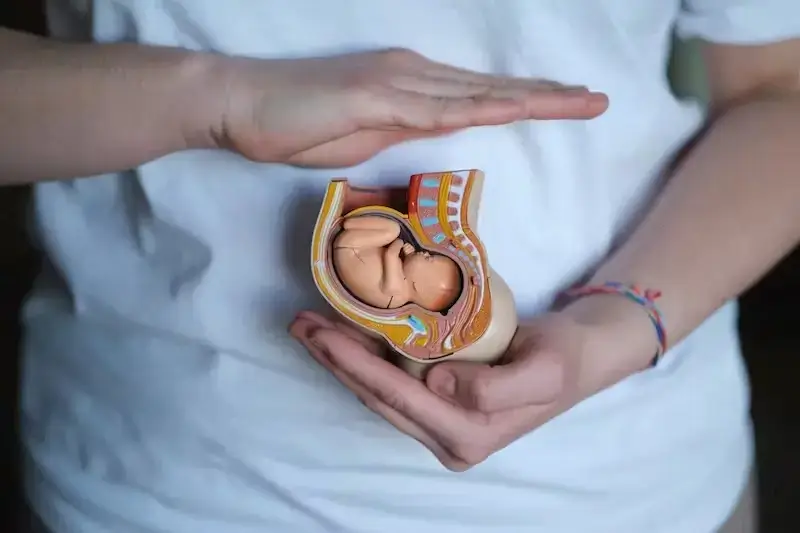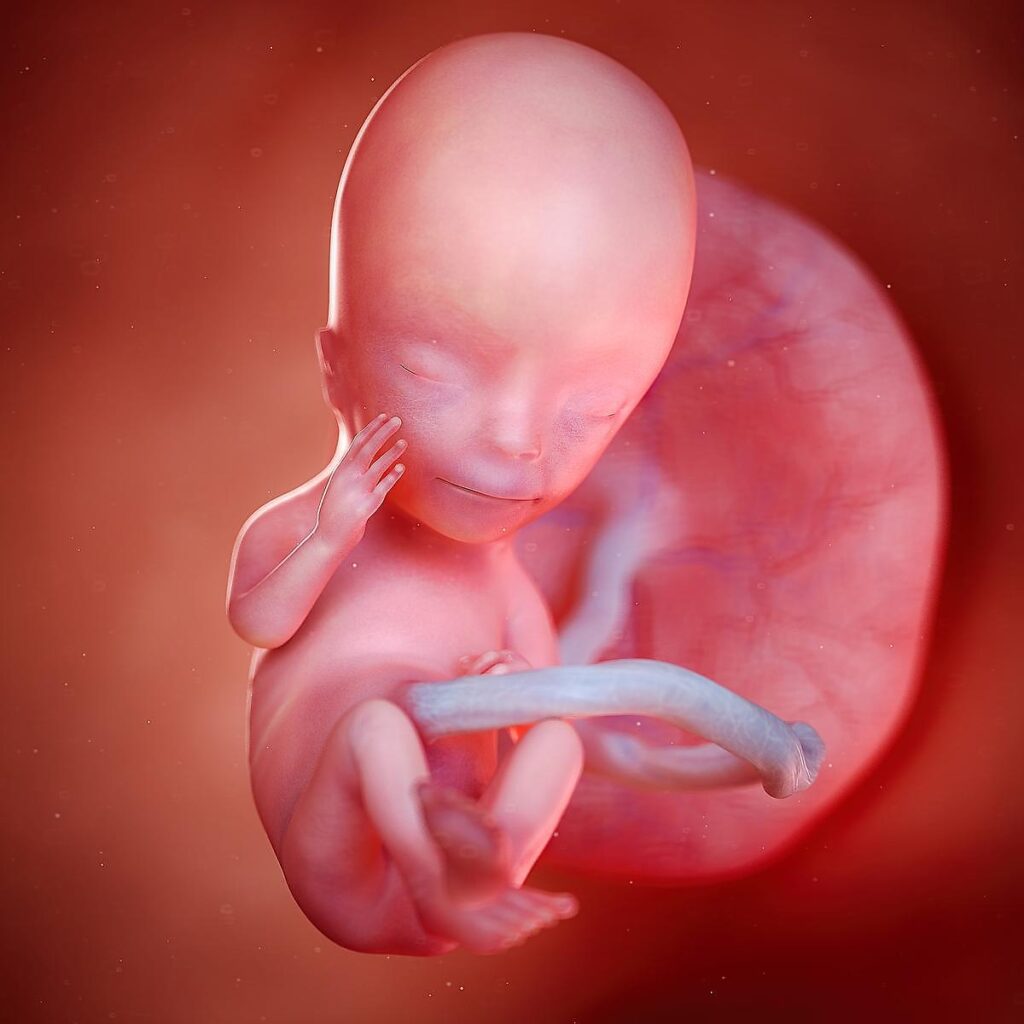
If you are 12 weeks pregnant, your baby has now reached the size of a kiwi and has started making sucking movements! Your bump keeps growing and you may already be ready for maternity clothes and for telling the happy news to the world.
Related: Can I Have Sex While Pregnant?
12 Weeks Pregnant – Fetus

What happens during the 12th week of pregnancy? Your baby’s organs and body parts keep developing fast, and he now measures 2.1 inch/ 5.4 cm, the size of a kiwi, and weighs 0.5 oz/ 14 gr. Your baby has started making sucking movements, his facial muscles have started functioning and he’s busy curling his fingers and toes!
The baby’s skeleton is still made of cartilage, but it will turn into bone over the following weeks. His eyes and ears have moved closer to their final position, and his nervous system is maturing rapidly.
The digestive system and salivary glands are already at work, and the kidneys are beginning to produce urine. The intestines have grown so fast that they protrude into the umbilical cord, but they will now begin to move back inside the abdomen. Spleen and liver have started functioning as well, his lungs keep developing and your baby inhales and exhales amniotic fluid.
The sex organs are well developed and you will be able to find out your baby’s sex in the next few weeks. And if you still haven’t been able to hear your baby’s heartbeat, you’ll be able to hear it now with an external Doppler.
Haven’t told the happy news to your boss, family and friends? You might consider to do this now.. or wait for your baby bump to speak for itself!
Related: Symptoms and Treatment of Partial Molar Pregnancy
12 Weeks Pregnant – Symptoms
At 12 weeks pregnant, your tummy is growing, and your waist is already thickening. You may already be ready to switch to your brand new maternity wardrobe, and even if you are not ready to give on your pre-pregnancy clothes yet, you probably feel more comfortable in loose clothing made from breathing materials that allow free movement, like stretchy leggings instead of jeans, soft cotton tops and cozy oversized cardigans.
Have you noticed that dark patches on your face and neck and that your areolas seem darker than before? There’s nothing to worry about. This is chloasma, usually called the mask of pregnancy, and it’s not going to last for long – your skin color will be back to normal shortly after delivery.
Did you notice increased vaginal discharge? If it’s milky white and practically odorless, it is probably leukorrhea – substance that is made of secretions from the vaginal area, bacterial flora from the vagina and old cells from its walls. You probably had leukorrhea before pregnancy, too. Increased discharge is due to increased blood flow to your vagina and increased estrogen production. This discharge is made up of secretions from the cervix and vagina, old cells from the walls of the vagina, and normal bacterial flora from the vagina – it may sound and look disturbing, but it’s completely harmless.
Related: What to Expect When You’re Expecting (and After the Birth of Your Child)…at Work
12 Weeks Pregnant – Questions
Week 12 may bring you new things to think about. Pregnancy changes everything, mind and body, and sometimes the changes we experience can be confusing – is this supposed to be like that, or should we visit our caregiver? Should I already invest in maternity clothes, or wait a bit and maybe take advantage of the existing wardrobe?
1. When should I Worry about Vaginal Discharge?
Increased vaginal discharge during pregnancy is common, and usually it is nothing to worry about, but sometimes it can be a symptom of infection. How do you tell the difference?
- Grey or white discharge with a fishy odor after intercourse may be a symptom of bacterial vaginosis.
- Frothy green or yellow discharge with an unpleasant odor, a red, irritated vulva and discomfort during intercourse or urinating may be symptoms of trichomoniasis. This is a sexually transmitted infection.
- Whitish, cheesy, odorless discharge, the vulva is inflamed and sore and you experience discomfort during urination or intercourse may be a symptom of a yeast infection.
- Increased watery or stretchy (mucus-like), clear or bloody discharge before 37 weeks of pregnancy may mean you’re leaking amniotic fluid and are at risk of preterm labor. In this case, call your doctor or midwife right away.
Even if you’re completely sure you have an infection and think you know what it is, don’t treat yourself with over-the-counter medications. It’s easy to confuse the symptoms, so it’s best to see your caregiver for a correct diagnosis.
2. How to Buy Maternity Clothes?
It’s tempting to start buying maternity clothes even before you got pregnant, but hold your horses and mind your budget – here’s what you can do before getting a brand new wardrobe.
- Ask friends who already gave birth if you can borrow their maternity clothing.
- Search in your own closet. Some long or oversized tops and loose skirts can look great on your changing figure for months. So do stretchy tops and bodycon dresses. Loose jumper dresses and smock dresses work great too, except when the front hem starts looking shorter than the back – then, it’s time to look for a different solution. Flowing maxi dresses are perfect if you have them.
- Go ahead and rob your partner. In the last days of pregnancy, you may find that not only you’re borrowing your man’s button down shirt… but finding use for the content of the underwear drawer. There’s no such thing as too weird when you hit the ninth month.
Related: When to Stop Birth Control Pills Before Pregnancy?

